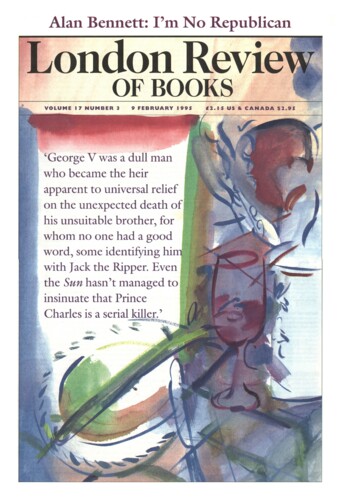I Love You Still
Russell Jacoby, 9 February 1995
Without the refugees from Nazi Europe American intellectual life would lack weight and reach. It is impossible to conceive of American political thought without Hans Morgenthau, Hannah Arendt or Leo Strauss; American psychoanalysis without Erik Erikson, Bruno Bettelheim or Heinz Hartmann; American publishing without Kurt Wolff or Theodore Schocken; architecture without Walter Gropius; art history without Erwin Panofsky; mathematics without Kurt Gödel; physics without Enrico Fermi – and the list goes on and on. Of course, not every refugee intellectual caused cultural waves. Karl Korsch, for instance, a leading German Marxist, found no role in American society. E.J. Gumbel, who had published sensational booklets in Weimar Germany on the assassinations of leftists, became a quiet American statistician. Some refugees returned to Europe after the war, leaving no mark on American letters. ‘Farewell, America,’ wrote Alfred Döblin as he steamed out of New York. ‘You were not very fond of me./But I love you still.’ Others laboured on projects that would see the light of day much later, Ernst Bloch’s Das Prinzip Hoffnung, written in the States, was published only in 1959. The classic work of the Frankfurt School, Adorno and Horkheimer’s Dialectic of Enlightenment, composed in Los Angeles during the war, became widely available only in the late Sixties.’

